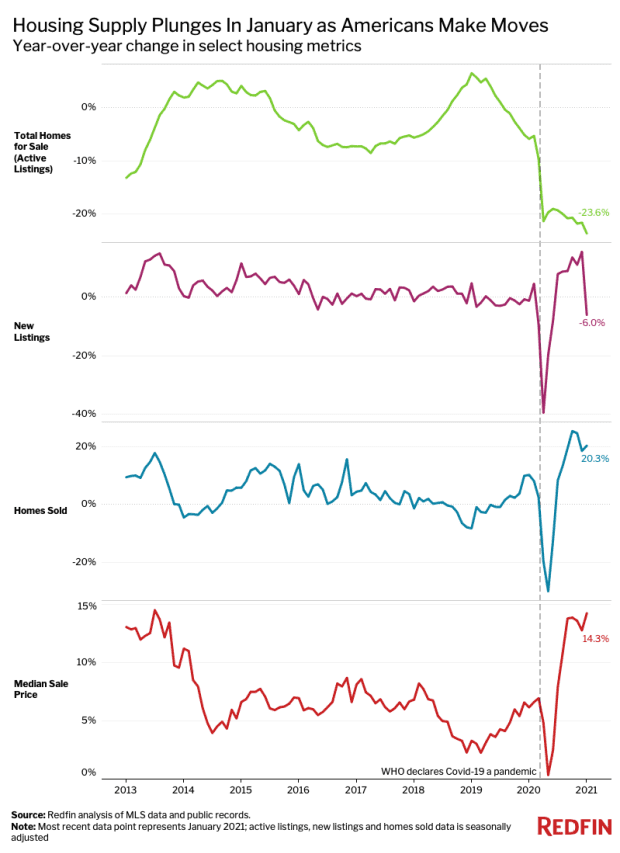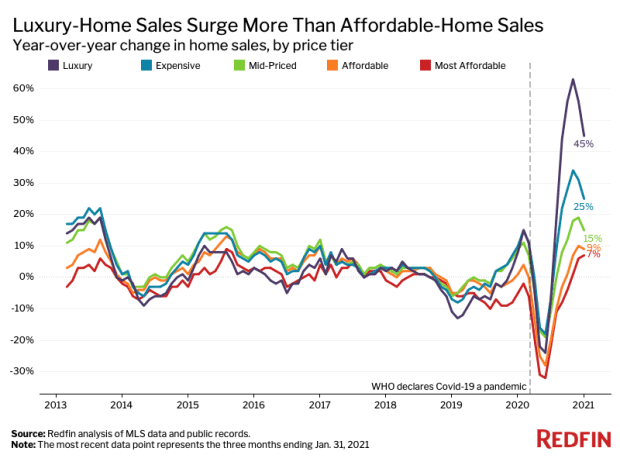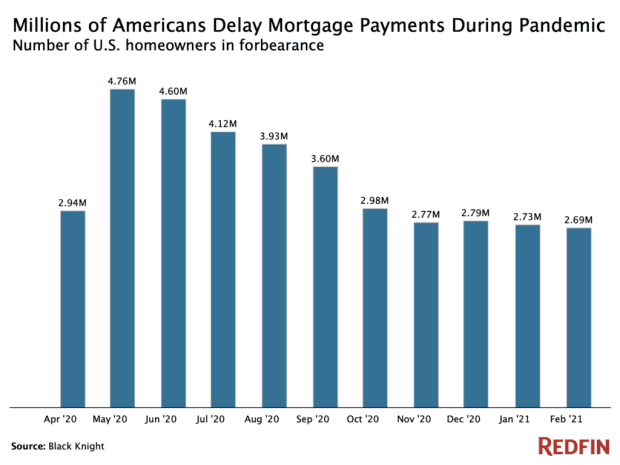Therefore, it may be appropriate for a K-shaped recovery from the COVID-induced recession to be accompanied by an increasingly uneven housing market. What is less certain is what it will mean for the economy and markets in general.
“I definitely think the pandemic has widened the gap between the rich and the poor,” said Glenn Kelman, CEO of Redfin RDFN,
“When I started in this business, there was a broad consensus around making the American dream accessible to people of low and middle income. After this year, I now see housing as a luxury asset. “
Reading: Redfin CEO: technology is finally ready to change the way you buy and sell your home
One of the clearest signs of the new affluence is that people with resources were able to go anywhere they wanted to escape the risks of the pandemic, or even its doldrums, while those who had not stood still.
“The clients we serve are people in professional white-collar jobs, with massive gains in the stock market, who are free to work anywhere in the country,” said Kelman. “For them, this was not a catastrophe, but a calm.”

To be sure, there is a yin and a yang in the room. When more resourceful people settle in lower-priced areas, it can help to increase the value of properties. But it can also lead to difficult cultural calculations. And Kelman fears that these migrations could simply push prices up everywhere, making it more difficult for more people to access the housing market, and perhaps the stairway to the middle class that home ownership has long represented.
“I want to be aware of the accessibility problems that this will create,” he said in an interview. “This creates political turmoil and anxiety. There is still no city that handled this well – but there is still no city that would not like to have this problem. At the end of the day, you want more people to move to your city, especially people with good jobs ”.
Steve Blitz, chief economist at TS Lombard, has a slightly different view of last year’s changes.
“It is the unfortunate aspect of any economic disruption that the upper segment always manages to overcome the problem with the least amount of disruption in their lives and the less fortunate bear the burden. There is nothing new about this, ”said Blitz.

What’s more, he thinks the exodus from COVID may actually turn out to be a good thing for the housing market and the economy.
Existing homeowners – largely baby boomers – have been clinging to their homes for years, making it harder for younger Americans to enter the market, Blitz noted.
“And now everything has been shaken,” he said in an interview. “Now that the log jam has been broken, it will continue. In the past decade, there has been a lack of mobility in terms of people moving to other cities in search of jobs. More mobility means a better workforce. “
Finally, Blitz points to the well-known thrust for the economy of the multiplier effect of buying a home – shopping at Home Depot HD,
using V credit cards,
more, hiring for well-paid construction jobs, and so on.
Kelman does not dispute the economic impact, but is concerned with how financial markets have worked for some, while others have been excluded.

“March 2020 was a calamity,” Kelman. “Credit markets were about to close and threaten the US economy and a great deal of stimulus was put into the system, but only half of America could access it. It is a big unexpected fortune for the rich, although there has been a radical change in the working class’s ability to access credit. We are seeing an increase in many jobs where you get paid in stocks and many of our financial and economic metrics don’t even account for that. The people we sell houses to are not using their wages, they are using their portfolios ”.
It is important to note that the uneven recovery from the subprime crisis a decade ago and policymakers’ response to it is considered by many analysts to have widened inequality and given rise to populist trends that helped elect Donald Trump in 2016.
Related: This chart shows who has it and who doesn’t have it in the real estate market, and it’s getting worse
“In the past, you were able to work very well to buy a house,” said Kelman. “I think this is going to change. This is a profound transformation. “
Investors will not take a look at real estate data until the end of the month, although next week’s economic calendar will bring an update on consumer price inflation on Wednesday and an early analysis of consumer sentiment in March on Friday. .
Last week, the Dow Jones Industrial Average DJIA,
ended the week with a 1.8% gain, and the S&P 500 SPX,
closed 0.8% higher. The Nasdaq Composite COMP,
fell 2.1% in the week, but managed to return to positive territory, albeit poorly, in the year so far.
To see: 16 million people have just been laid off, but US stocks had their best week in 45 years
